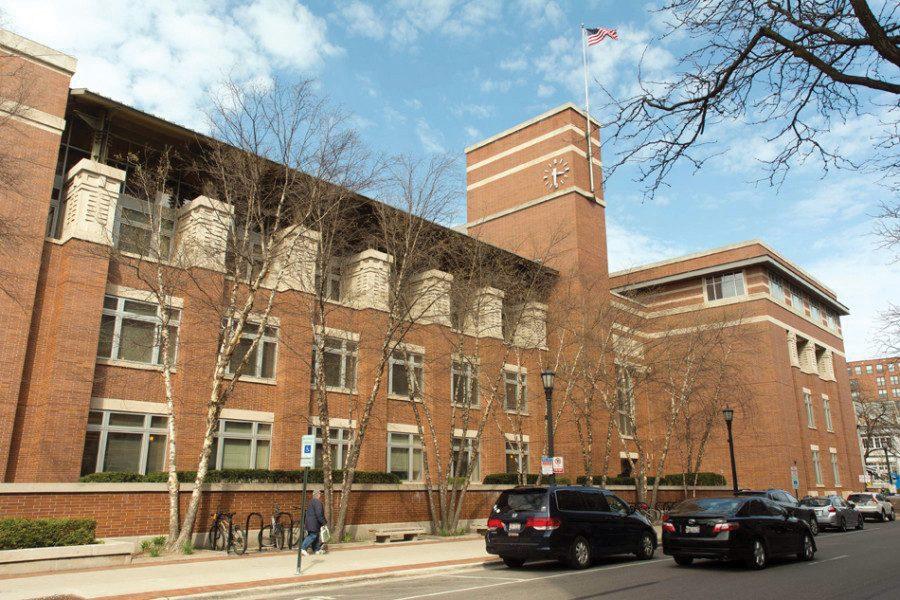EPL expands popular WiFi program to Evanston schools
(Daily file photo by Nathan Richards) Evanston Public Library, 1703 Orrington Ave., is looking to further expand their WiFi hotspot lending program. Library officials said the program will now be available at two Evanston schools.
January 17, 2017
The Evanston Public Library is expanding its WiFi hotspot program to local schools this month after launching a pilot program, one of the first of its kind in the country, last May.
The program allows residents to check out portable WiFi routers free of charge. The expansion includes increasing the number of available hotspot devices from 30 to 100 as well as increasing the lending time from two to four weeks, according to a news release from the library. Additionally, hotspots will be available for students and parents at Lincoln Elementary School and Evanston Township High School.
The expanded program is live at the library’s flagship branch and will begin at the local schools within the next week, said Tim Longo, director of technical services for the library.
During the pilot program, Longo analyzed data from Sprint, the data service provider for the program, to track which parts of the city were using the hotspots the most. Longo said that since highest usage was in the area around ETHS, library staff decided that it would be a good location to expand the program.
Longo said Sprint provided each hotspot device for free and is providing the library with unlimited data plans at a reduced price.
Jill Schacter, EPL’s marketing and communications coordinator, said library staff reached out to Evanston/Skokie School District 65 and Evanston Township High School/District 202 in an effort to expand Wi-Fi access to students and their families. Of those schools, ETHS and Lincoln agreed to pilot the program. The library also hopes to expand the program to more local schools in the future, Schacter said.
A teacher at Lincoln Elementary School had alerted the school’s administration when students couldn’t access certain math work at home because of a lack of WiFi and technology, she said.
“(The schools) have a better idea of who in their community might be more in need of services,” Schacter said.
According to the news release, the program’s expansion is due in part to a $15,000 grant from the Evanston Community Foundation to advance EPL’s efforts to expand residents’ digital skills. The expansion was also possible because of the pilot program’s success.
According to Schacter, none of the original 30 devices disappeared or were damaged.
“We didn’t really know how it would go to loan out these kind of devices, and there were no glitches with that,” Schacter said.
Schacter said that the library staff felt the need to expand the hotspot program because Evanston residents’ demand for the devices has exceeded the supply. The average wait time for a device during the pilot program was about two weeks, so EPL usually had between 40 and 60 people on a waitlist, Longo said.
A digital literacy survey conducted by the library in 2016 revealed that 14 percent of Evanston residents say that they do not have Wi-Fi access in their homes, the news release said.
“We acknowledged that there was a digital divide in the country in general, and our community is no exception,” Schacter said. “There is more than one kind of literacy. Reading literacy is important but so is digital literacy, and we take that seriously.”
Email: [email protected]
Twitter: @SydStone16


